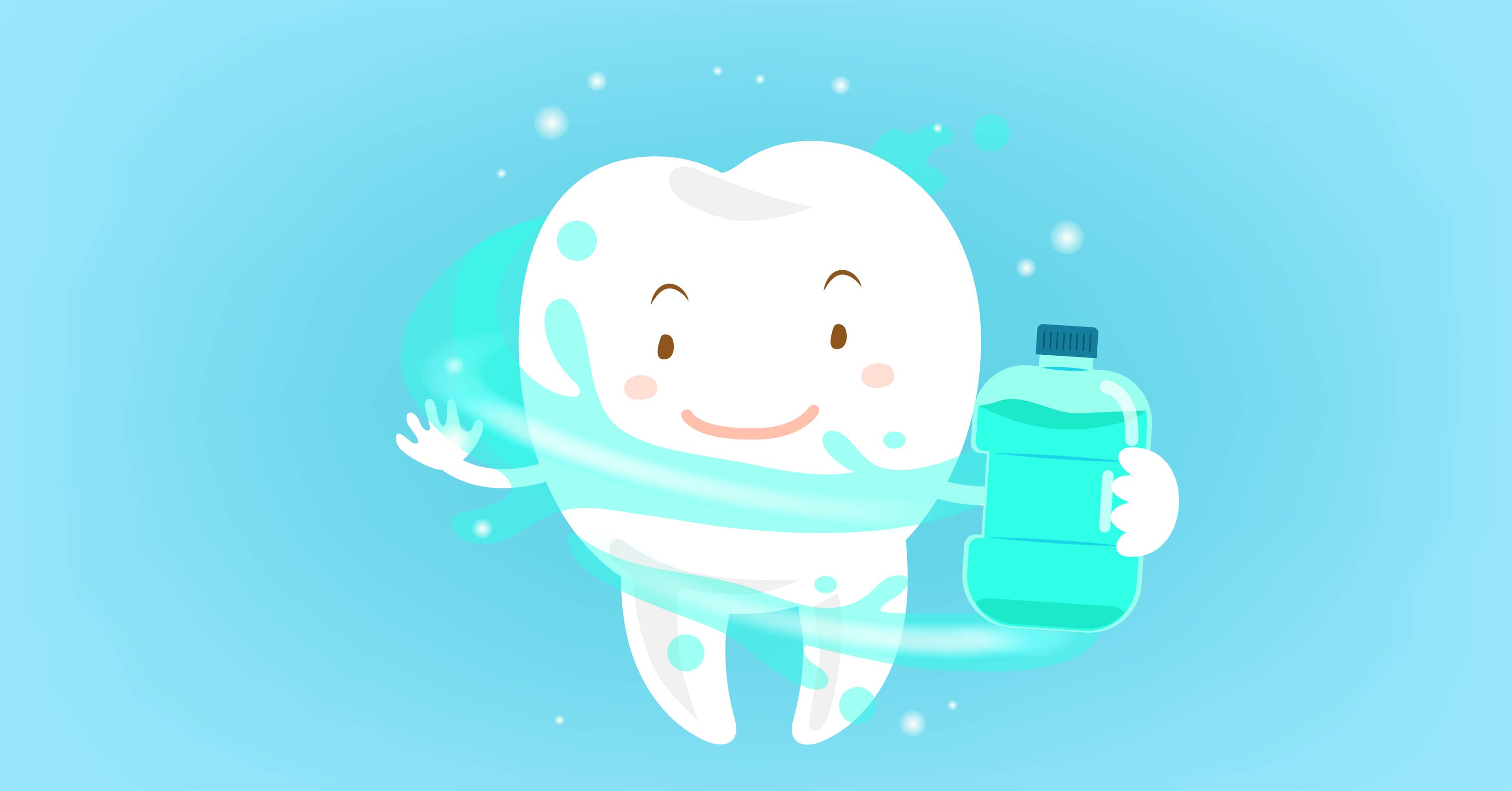Using mouthwash ensures a complete healthy dental care routine alongside daily brushing and flossing and regular medical check-ups. When choosing the right mouthwash and using it appropriately, desirable dental and oral health-related outcomes can be achieved, and mouthwash benefits become visible.¹
Here are the top 5 reasons why you should use mouthwash daily:
Deep clean the tooth and non-tooth oral surface areas
Mouthwash accesses areas within the mouth that are inaccessible with a toothbrush.² Mouthwash kills bacteria within these areas, reducing and preventing potential oral health-related concerns.Mouthwash can help prevent gum disease
Mouthwash contains ingredients that freshen the breath and fight tooth decay and cavities.¹Mouthwash benefits include reducing plaque formation, relieving pain, controlling cavities, reducing/preventing acid-induced erosion, and reducing/preventing gum disease, among others. ³
Helps freshen breath
Mouthwash provides that sense of freshness while controlling breath odor. It not only freshens your breath but also works to kill the bacteria that causes it. Mouthwash can also dislodge food particles that get stuck in your teeth after you eat, as well.Whitens teeth
Mouthwash contains hydrogen peroxide, which works toward teeth whitening. ³ When used consistently whitening mouthwash can also significantly whiten stained teeth.Different types of mouthwash can also include non-abrasive whitening technology that does not harm the enamel yet forms a protective shield, preventing future stains.
Mouthwash contains different active ingredients
Mouthwash varies in its functions and depends on individual oral health needs. Mouthwash contains active ingredients that work differently on tooth surfaces and non-tooth oral surfaces to ensure ideal dental healthcare. Antimicrobials, for instance, kill bacteria, which, in turn, reduce plaque. Anti-inflammatories relieve pain. Fluoride resists acidity, controlling cavity formation, and bicarbonate alkalinizes the pH of saliva to reduce acid-induced erosion. ³
How to Effectively Use Mouthwash Every Day?
Mouthwash does not substitute daily brushing and flossing but is complementary to daily dental hygiene routines. ² Studies find it best that users follow the manufacturer’s instructions on the use of the mouthwash in order to better benefit from it and to allow the mouthwash to achieve intended and desired results. ⁵
Effective use of mouthwash requires using it regularly and consistently. In addition to brushing and flossing daily, using mouthwash everyday needs to become part of the routine to ensure optimal oral health. Mouthwash will further supplement the daily dental routine to prevent and/or reduce harmful oral bacteria while maintaining a fresh feel and smell to the mouth. A typical dental care routine, thus, involves brush, floss, and mouthwash. Mouthwash would require rinsing the mouth vigorously and thoroughly and gargling.
How to use Listerine Mouthwash?
Pour 20ml of Listerine Mouthwash into a glass
Emptying the mouthwash into the mouth
Rinsing mouthwash around teeth and gums for 30 seconds
Spitting the mouthwash out
Rinsing the mouth with water after using mouthwash is not recommended.
Despite these well-known steps to using mouthwash, always read the steps posted on the label by the manufacturer. Ultimately, how you use the mouthwash depends on what you are using it for.
Be confident that using mouthwash would not only prevent dental-related diseases but would provide that feeling of freshness you strongly desire throughout the day!
In conclusion, mouthwash has proven to be a preventative measure to a variety of dental-related diseases. In using the right mouthwash in a consistent and effective manner, the prevention of cavities, tooth decay, pain, and gum diseases, among others, is significantly greater than not using mouthwash or using it inconsistently.
References:

